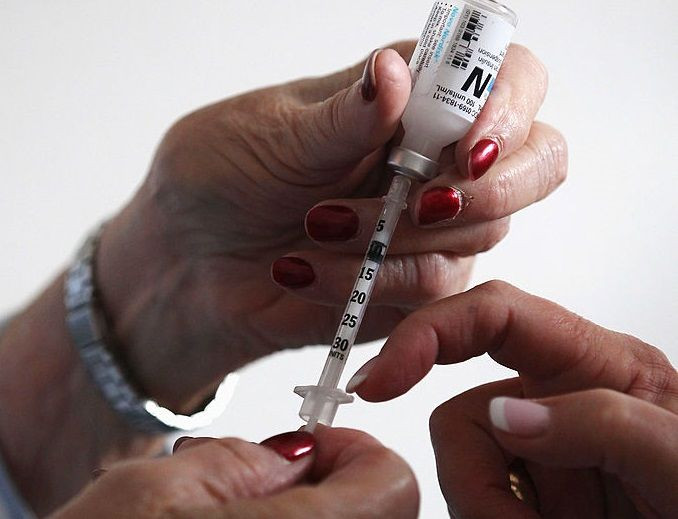A team of U.S. scientists is nearing a breakthrough in stem cell research that may help patients with type-1 diabetes whose pancreas is unable to produce their insulin for the metabolism of blood sugar.
The technique helps grow insulin-producing cells that also prevent them against an immune attack by the host after they are transplanted into the patient.
In type-1 diabetes, the body of the patient attacks the beta cells that are present inside clusters in the pancreas, which are known as "islets." These beta cells regularly monitor the levels of blood sugar and dictate the release of insulin to reduce it.
This mechanism is missing in patients with type-1 diabetes and therefore, they need regular insulin injection or pumps to stabilize blood sugar levels.
One possible treatment for such patients is to transplant donor islets into them but that risks chances of rejection by the body’s immune system as there is a chance they are considered as “foreign cells.” To avoid this, they have to take anti-rejection medicines that put them at risk of other infections and illnesses.
To overcome this challenge, the team of researchers at the Salk Institute for Biological Studies in California programmed pluripotent stem cells (iPS) to produce human islet-like organoids (HILOs).
The team was successfully able to make HILOs mimick the pancreas and made them produce insulin that regulated blood sugar levels in mice.
"In the past, this functionality was only achieved after a month-long maturation in a living animal," said Ronald Evans, director of the Gene Expression Lab at the Salk Institute for Biological Studies. "This breakthrough allows for the production of functional HILOs which are active on the first day of transplantation, placing us closer to clinical applications."

© 2025 Latin Times. All rights reserved. Do not reproduce without permission.




